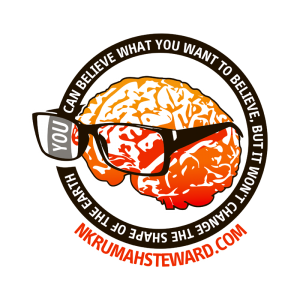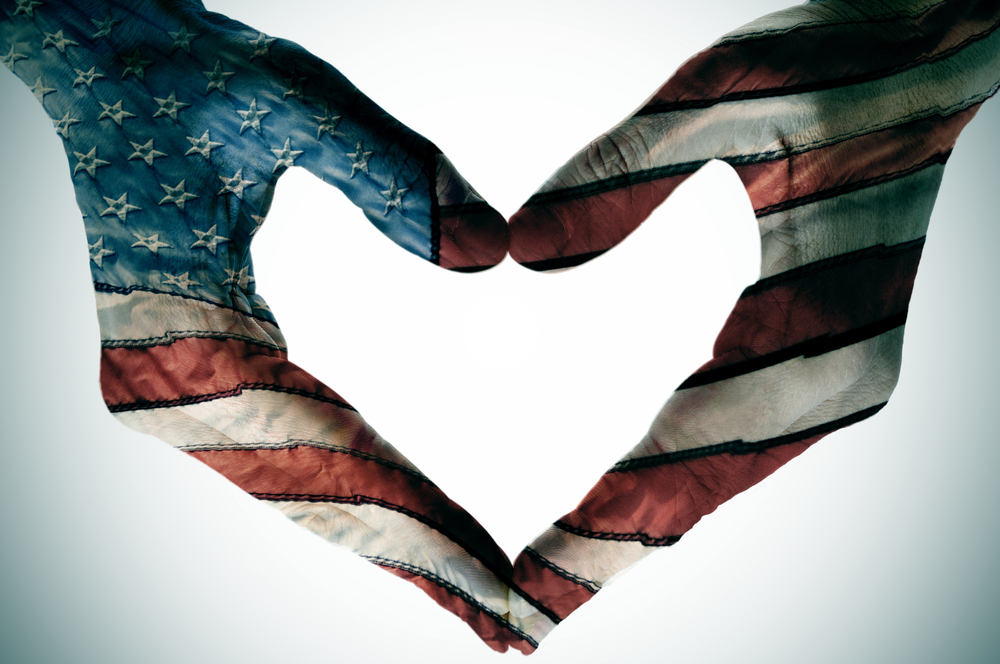When a good friend of mine was a little girl she badly needed glasses.She still remembers how she felt when she finally put on a pair of prescription glasses for the first time and saw that the blurry, green part of trees was actually made up of hundreds, even thousands, of individual leaves.
Think about that.
She knew what trees were.
But what she hadn’t seen were the individual leaves.
This to me is analogous to how we view the Other.
I have been told more times than I can count that, “I don’t see you as Black. I just see you as Nkrumah.”
It is never meant with any offense.
None is ever taken.
What they mean is that now that they’ve gotten to know me personally I have ceased being a nondescript, generic “black” person.
And I always tell them, “I want you to see me as black. That is a part of who I am. But that isn’t ALL that I am.”
I am also a comic book fan.
I am also a husband who is lucky enough to have married his best friend.
I write songs.
I also over post on Facebook about my children.
My favorite day of the year is when my good friends and I go to the Motor City Comic-Con.
I host a Super bowl party every year and my favorite holiday is Thanksgiving.
How much of that would you know about me from just knowing I am “black”?
But sadly, we live in a world where too many people feel that “black” is all they need or even want to know about me.
And if, God forbid, a video surfaced online of me being killed by a law enforcement officer, that is all those people will see.
Another dead black man.
And judging by the vitriol that I have come to expect to be spewed online after something like that occurs, I have no doubt that, some will feel that my death has made the world a safer place.
Those who know me would know that they would’ve killed so much more than just a black man.
They would know that they had also killed a father, a brother, a son, a husband, a cousin, a best friend, a songwriter, etc.
The Washington Post published an article in 2014 that showed that 75% of White Americans don’t have a single black friend. (Link)
Not one.
And it’s only because whites that did have a black friend had more than one that the friend profile of the average white American looks something like this;
If the average white American and the average black American each had 100 friends, the average white American would have 91 white friends, 1 black, 1 Latino, 1 Asian, 1 biracial, and 4 people of an unknown racial origin (whatever the hell that means).
Conversely, the average black American if they had 100 friends, 83 of them would be black, 8 would be white, 2 would be Latino, 0 Asian friends, 3 biracial friends and 5 of those “mystery meat” friends.
Listen people, I don’t like to state the obvious but just because you own a telescope doesn’t make you an astronomer.
I find it pretty presumptuous how black and white people talk so confidently about what each other are like, when in reality, we barely know each other.
What makes you qualified to offer a meaningful opinion on the condition of black Americans, white Americans, Muslim Americans, Hispanic and Latino Americans etc. if everyone you know from that group you can count on one hand, or worse, you don’t know ANYONE from that group?!!
How is it again that you managed to acquire all of this “expertise” you share so freely across social media?
From watching television?
Oh, you don’t say?
So I suppose if you had a debilitating or possibly a life-threatening medical condition, you would also take advice on what treatment path to follow from someone who has never studied medicine, maybe took a few biology classes 20 years ago in college, but has watched every single episode of ER and owns the entire series on DVD?
Far too many people seem perfectly comfortable letting labels determine who they know and who they even want to get to know.
This isn’t just an American problem.
This is a human problem.
And this isn’t just limited to race. You see it applied to politics (Conservative/Liberal), political affiliation (Republican/Democrat), or even religious beliefs (Christian/Muslim).
While I recognize that working to change the system is absolutely necessary to combat systemic injustice, without people knowing each other on an individual level, there can be no lasting change.
Case in point, take the Supreme Court decision of Brown v. Board of Education of Topeka (1954) which overturned Plessy v. Ferguson (1896) by saying that separate but equal was inherently unequal. This ruling changed the law of the land and is an example of systemic change, yet some 60+ years later in 2016, the U.S. Government Accountability Office did a study that stated, “hyper-segregated schools, in which 90% or more of students are minorities, grew from 5.7% in 1988 to 18.4% in 2016″.
We’re moving backwards.
U.S. Rep. John Conyers from my home state of Michigan said of these statistics that, “current barriers against educational equality are eerily similar to those fought during the civil rights movement.”
How is this possible? We changed the system.
Because if you change the system, but you haven’t changed the people, they will and do figure out a way to circumvent it.
After slavery was abolished in America by the thirteenth amendment in 1865, the wealthy Southern Elite began IMMEDIATELY working on building a system where their former property (recently emancipated enslaved Africans) were free in name ONLY.
(Read more about this in detail here).
These former Planters immediately began passing laws called “black codes” throughout the south that denied even the most basic of freedoms to freed blacks. Blacks were denied the right to seek new employment. The only choice they had was to work for the plantation where they were previously enslaved. They were also denied the right to negotiate wages with their former masters, now called “employers”, and if they didn’t like it, the State could even come take their own children away if they tried to leave and head north for a better life.
The thirteenth amendment might’ve abolished slavery but hadn’t changed how Southern aristocrats viewed their relationship with their former slaves.
One of the most valuable things about studying history is that it affords you the ability to understand context. So as a result, while I am often deeply disappointed by what I see in the news, I am rarely, if ever, surprised.
Fact: Systems don’t create themselves.
Fact: Systems don’t maintain themselves.
Systems are built and maintained by people.
Focusing solely on the systemic problems in society in an effort to stop social, racial and economic injustices, without addressing the way people think and view the world around them is analogous to a pharmaceutical company appropriating all of their resources towards treating symptoms but not the actual disease itself.
And while there might be more profit in treating symptoms than curing disease, I, along with millions of other Americans, are sick of being sick.
Those of us who are serious about making lasting change (of which there are millions of us), while working to address systemic injustice, need to do so in conjunction with strategic programs that help encourage people to reach out, have difficult, but necessary conversations, and to build healthy relationships.
We have to understand what we are up against.
The reality is that there are many, many people out there, both black and white, rich and poor, educated and uneducated, straight and gay, religious and unreligious, who are severely limited in their willingness and capacity to love.
Don’t let them discourage you from moving closer to the tree.
Understand that they will always believe the absolute worst about others because it justifies the lens through which they view the world.
Move in even closer.
Recognize that everything they say and do is all with the intent to diminish your willingness and capacity to love.
But move even closer still.
And don’t stop coming forward until you can see the leaves.

